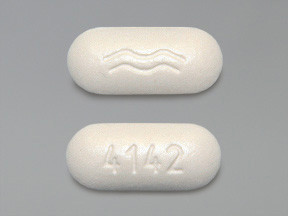DRONEDARONE - ORAL
PHONETIC PRONUNCIATION: (DROE-NE-da-rone)
COMMON BRAND NAME(S): Multaq
GENERIC NAME(S): dronedarone HCl
Uses
USES: This medication is used if you have had certain types of irregular heartbeat (paroxysmal or persistent atrial fibrillation) in the past but now have a normal heart rhythm. It helps you keep a normal heart rhythm and lowers your chance of having to go to the hospital for atrial fibrillation. Dronedarone is known as an antiarrhythmic drug. This medication should not be used if you have permanent atrial fibrillation because of the increased risk of very serious side effects. See also Warning section.
How to use DRONEDARONE - ORAL
HOW TO USE: Read the Medication Guide provided by your pharmacist before you start taking dronedarone and each time you get a refill. If you have any questions, ask your doctor or pharmacist. Take this medication by mouth with food as directed by your doctor, usually twice daily (once with your morning meal and once with your evening meal). Avoid eating grapefruit or drinking grapefruit juice while using this medication unless your doctor or pharmacist says you may do so safely. Grapefruit can increase the chance of side effects with this medicine. Ask your doctor or pharmacist for more details. Take this medication regularly to get the most benefit from it. To help you remember, take it at the same times each day. Do not stop taking dronedarone without asking your doctor first, even if you feel well. Your doctor may direct you to also take another medication ("blood thinner"/anticoagulant) to lower the risk of getting serious blood clots. Follow your doctor's instructions carefully. Get medical help right away if your heartbeat or pulse becomes fast or irregular.
Side Effects
Precautions
Interactions
Overdose
Images
Reviews
Faq for DRONEDARONE - ORAL
Dronedarone is an oral medication that belongs to the class of antiarrhythmic drugs. It is used to treat certain types of irregular heart rhythms, such as atrial fibrillation or atrial flutter.
Dronedarone works by blocking certain electrical signals in the heart that can cause irregular heart rhythms. It helps to stabilize the heart rhythm and reduce the risk of complications.
Dronedarone is usually taken by mouth, with or without food. The specific dosing instructions should be followed as directed by your doctor or pharmacist. It is important to take the medication regularly as prescribed.
Common side effects of Dronedarone may include diarrhea, stomach pain, nausea, vomiting, and dizziness. However, serious side effects such as liver problems, lung problems, or worsening heart failure may also occur. It is important to seek immediate medical attention if any severe side effects are experienced.
Yes, Dronedarone can interact with several other medications, including certain antibiotics, antifungal drugs, HIV medications, and other heart medications. It is important to inform your doctor about all the medications you are currently taking to avoid any potential interactions.
Dronedarone should not be used during pregnancy unless specifically recommended by a doctor. It may harm an unborn baby. It is also not known if the drug passes into breast milk, so it is generally advised to avoid using it while breastfeeding.
The effectiveness of Dronedarone may vary from individual to individual. It may take several weeks for the drug to start working and for noticeable improvements in heart rhythm to occur. It is important to continue taking the medication as prescribed, even if there are no immediate results.
Dronedarone does not cure atrial fibrillation or other heart rhythm disorders. It helps to manage the condition and reduce the risk of complications. The underlying heart condition may still require ongoing management and treatment.
Dronedarone can be taken with or without food, as directed by your doctor. However, some individuals may find it easier to tolerate the medication when taken with a meal. Follow the dosing instructions provided by your healthcare professional.
Warning
WARNING: Do not take this medication if you have severe heart failure that makes you short of breath during light activity or even while resting, or if you recently had to stay in a hospital because your heart failure got worse. Also, do not take this medication if you have a certain kind of irregular heartbeat (permanent atrial fibrillation) that will not or cannot be changed back to a normal heart rhythm. Dronedarone may increase your risk of death, stroke, or the need to be treated in the hospital for heart failure if you have any of these conditions. Consult your doctor for more details and to discuss the risks and benefits of dronedarone. Tell your doctor right away if you have new or worsening symptoms of heart failure such as shortness of breath, swelling ankles/feet, unusual tiredness, unusual/sudden weight gain.
Disclaimer
IMPORTANT: HOW TO USE THIS INFORMATION: This is a summary and does NOT have all possible information about this product. This information does not assure that this product is safe, effective, or appropriate for you. This information is not individual medical advice and does not substitute for the advice of your health care professional. Always ask your health care professional for complete information about this product and your specific health needs.

No Reviews Yet